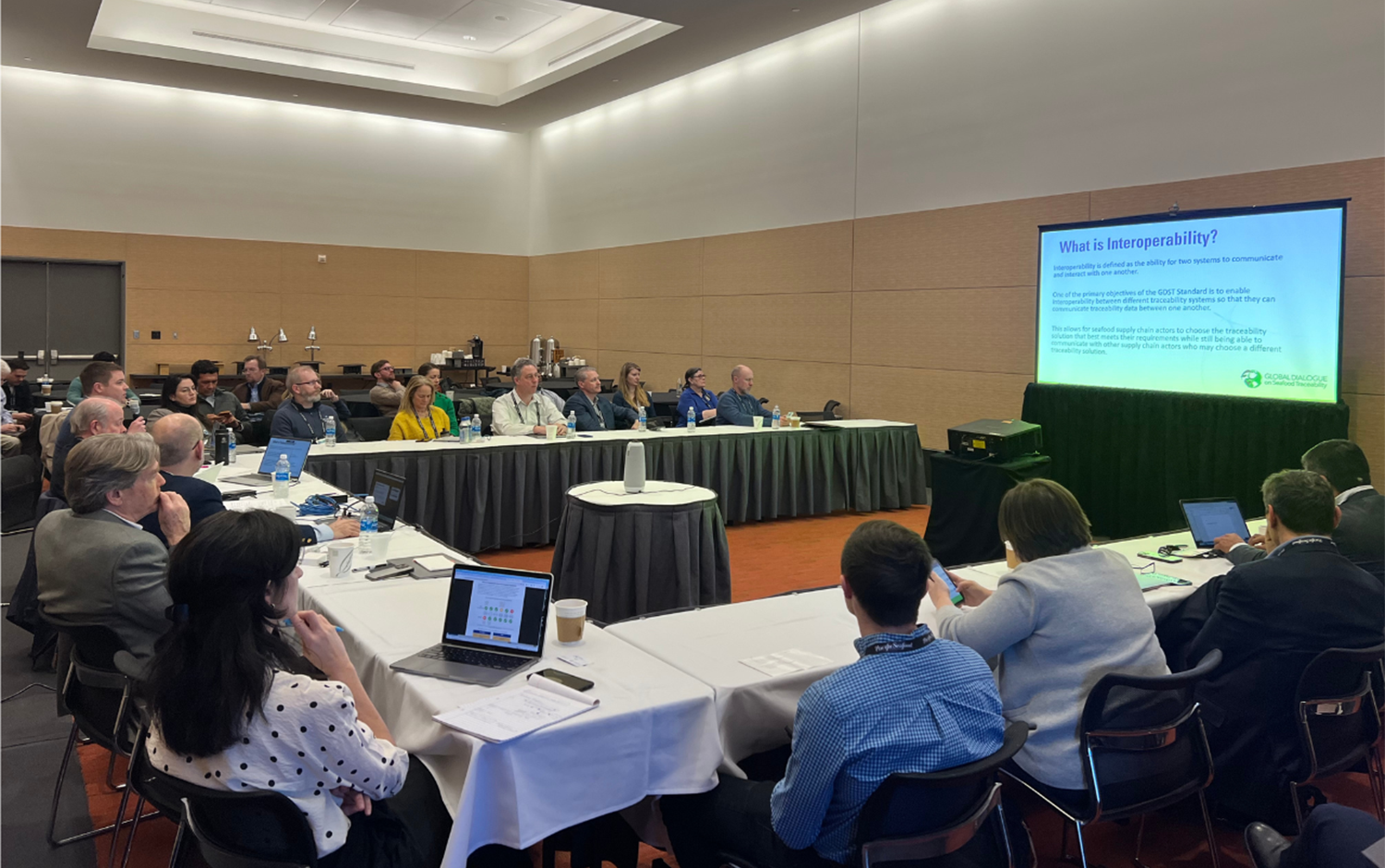SeafoodSource is closely following the sustainable seafood movement by compiling a regular round-up of sector updates about sustainability initiatives and certifications.
- The Alaska Seafood Cooperative has made progress on gear modifications aimed for use in the Amendment 80 fleet in the Bering Sea. The project's objective is to mitigate whale entanglements in deep-water flatfish gear, The Alaska Seafood Cooperative said in a release.
Ten killer whales were caught incidentally as bycatch by Alaska groundfish trawling vessels in 2023, only one of which survived, according to NOAA Fisheries.
Research thus far has included testing possible net modifications in the world’s largest flume tank, located at Memorial University in St. John’s, Newfoundland.
“We are pleased with the progress so far and thank everyone involved for their dedication to getting this work done so quickly,” Alaska Seafood Science Project Manager John Gauvin said. “Now that we have a design we expect will provide deterrence over the entire net opening, we will need to test it in the fishery this summer to determine whether it’s successful or if we need to make further adjustments.”
Amendment 80 vessels have agreed to use the new gear for fishing in the Bering Sea deep-water flatfish fishery beginning in May 2024.
- The Global Dialogue on Seafood Traceability (GDST) announced the launch of its new website to drive global engagement ahead of Seafood Expo Global, which will take place from 23 to 25 April in Barcelona, Spain. The organization said the new website is a strategic move to expand global engagement and facilitate dialogue between the seafood industry, traceability experts, civil society, and technology providers.
"The launch of the new website signifies an additional milestone achieved toward the GDST Foundation’s value proposition as a focal point at the center of crucial global traceability discussions," GDST Executive Director Greg Brown said in a release. "It is a convenient entry point for information about the global Dialogue and GDST tests, tools, resources, and services that facilitate traceability implementation."
- Marine protected areas (MPAs) offer a range of economic benefits to both the tourism and fishing industries, a new study has found.
The study, “Evidence of economic benefits from marine protected areas,” published on 27 March in Scientia Marina, found MPAs boost overall economic performance of fisheries.
The research was based on an investigation of more than 50 marine protected areas in 30 countries, conducted by researchers from the Faculty of Biosciences and Aquaculture at Nord University.
“In every corner of the globe, ocean protection boosts economies,” Nord University Researcher and Professor Mark John Costello said in a release. “For far too long, marine parks have been overlooked as GDP generators and job creators. This study offers the strongest evidence that protecting the ocean replenishes it with abundant fish, protects it against climate change, and boosts local and national economies. Now, we can add tourism operators and fisheries to the list of ocean protection beneficiaries.”
The study also found MPAs can restore fish populations by around 500 percent on average, yield bigger fish over time, and help replenish fisheries surrounding MPAs.
“Significantly, the study finds no evidence anywhere, at any time, that MPAs imperil the fishing industry, which has traditionally been an outspoken opponent of ocean protection. The fishing industry has historically sought to block no-take MPAs, arguing that banning fishing delivers a blow to profits. What this study unequivocally shows is that MPAs that ban fishing are not only more profitable, they are also cheaper to manage and maintain than MPAs with more complex fishing rules,” Costello said.
- Portland, Oregon, U.S.A.-based nonprofit Seafood and Gender Equality (SAGE) partnered with Seaworthy to launch a new podcast – In Hot Water – about seafood companies and individuals working to combat the global climate crisis.
The podcast will feature people working in fisheries, aquaculture, seafood, and conservation, the organization said in a release.
“The series should encourage the seafood sector to think about how we must work alongside seafood communities in addressing these challenges, and since the climate emergency is global, we can expect to see similar challenges throughout global seafood supply chains,” SAGE Founder Julie Kuchepatov told SeafoodSource.
The two organizations previously collaborated on a podcast titled The Conch, which interviewed women making a difference across the seafood sector.
“When we talk about climate justice, we recognize that marginalized and oppressed groups are the communities experiencing the greatest impacts of the climate crisis, which exacerbate inequitable social conditions. We hope to amplify the voices of those most affected and center their leadership and community-identified solutions,” Seaworthy Founder Crystal Sanders-Alvarado said.








